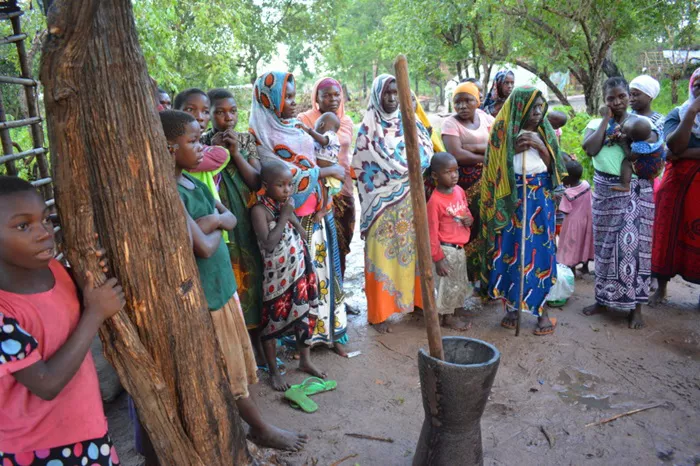In a celebration of resilience, dignity, and joy, elderly women from a South African township took center stage in a beauty pageant designed specifically for grandmothers, held in the suburb of Thokoza, east of Johannesburg.
Among them was 72-year-old Joyce Malindi, who won her first pageant during the apartheid era at the age of 17. Now, 55 years later, she returned to the runway, her silver curls gleaming and her wooden clogs tapping rhythmically as she danced to Hugh Masekela’s “Happy Mama.”
Unlike traditional beauty contests, this pageant excluded swimwear and evening gowns. Instead, participants showcased their finest Sunday attire—ranging from sleeveless summer dresses and vibrant orange headscarves to pearl necklaces and traditional garments. The red carpet rolled out across the community hall became the heart of the event, where proud grandmothers paraded with grace and style.
The event featured prayer sessions, speeches, and performances highlighting the scourge of domestic violence. But the true highlight was the fashion showcase, which departed from the youth-centric norm of beauty pageants.
“I felt like I was reliving my youth,” said Malindi, a great-grandmother of five, as she joyfully danced, embodying the spirit of the moment.
The beauty contest was organized by the Sukuma Mbokodo Support Group, a women-led organization committed to empowering older women. Supporters, many of them members of the group, cheered enthusiastically and captured the moment on their phones.
The competition’s age range spanned from 63 to 81 years old. The crown was awarded to 78-year-old Margaret Fatyela, a mother of eight and a former domestic worker, who was participating in a beauty contest for the first time.
“We’re like schoolgirls again,” said Fatyela, seated next to her prize—a tea set and a bag of toiletries.
“I feel young again. I feel like I can do anything,” she said, casting a warm glance at first runner-up Lidia Mokoena, 81, who proudly wore her natural facial hair.
Backstage, women sipped Indian tea from a shared kettle and nibbled on baked scones. Though red and berry-colored lipsticks were in high demand, most contestants opted for minimal makeup and wore beaming smiles instead.
“You can’t get their attention,” joked 19-year-old volunteer hairstylist Ntokoza Ntshinga. “They want to talk and issue orders while we’re trying to do their hair.”
Event organizers emphasized that the aim was to honor elderly women—many of whom are the backbone of communities but often go unrecognized.
According to official data, nearly 40% of South African children are raised in households headed by grandparents. This is largely due to socioeconomic hardships, including high youth unemployment, teenage pregnancies, and AIDS-related deaths, which have left many parents unable to care for their children.
“These women are often forgotten as soon as their pension checks arrive,” said local official Bridget Tusi. “All they do is care for their grandchildren and great-grandchildren. It’s amazing to host an event like this that celebrates them and gives them a chance to forget their daily struggles.”
For Malindi, who lost her husband four years ago, the event was a source of renewal.
“At this stage of our lives, we sometimes feel like it’s all over, that life has ended when our husbands pass,” she said. “But today reminds us that we’re still alive, that life goes on, and that we can still be worthy grandmothers.”
Related Topics






























